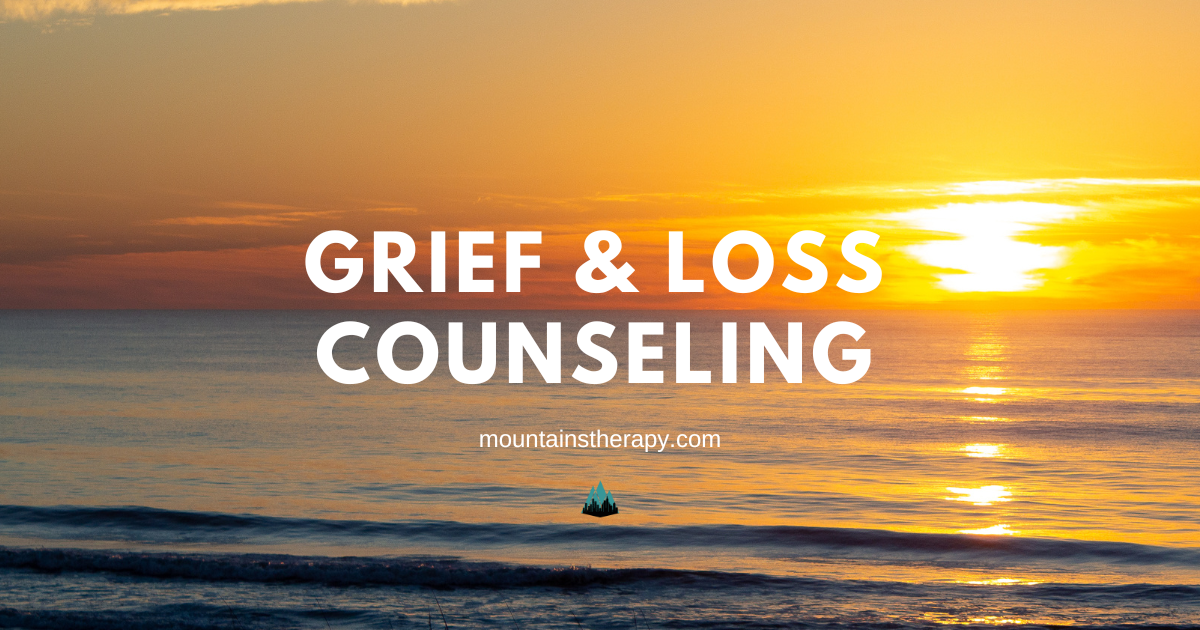Grief Counseling in Montclair, NJ: How to Heal and Find Support
Learn more about Grief Therapy.
In This Blog, You’ll Learn:
✅ How to know you’re grieving and common signs to look for
✅ The physical and emotional impact of grief
✅ The five stages of grief and how they impact healing
✅ Different types of losses people grieve beyond death
✅ Why grief is so hard and whether it ever goes away
✅ Frequently asked questions about grief
✅ How grief counseling can support your healing journey
How to Know You're Grieving: Common Signs
Grief affects everyone differently, and sometimes, people don’t even realize they are grieving. You may expect grief to feel like overwhelming sadness, but it can manifest in many ways, including physical, emotional, and behavioral signs. Here are some common indicators that you may be experiencing grief:
Emotional Signs of Grief:
- Intense sadness or crying spells
- Feelings of numbness or emptiness
- Mood swings, irritability, or sudden anger
- Anxiety, panic attacks, or excessive worry
- Guilt or regret, even for things beyond your control
- A sense of loneliness or isolation, even when around others
Physical Signs of Grief:
- Fatigue or extreme exhaustion
- Changes in appetite (eating too much or too little)
- Sleep disturbances, including insomnia or oversleeping
- Body aches, headaches, or muscle tension
- Stomach issues, nausea, or digestive problems
- Increased susceptibility to illness due to a weakened immune system
Cognitive and Behavioral Signs of Grief:
- Difficulty concentrating or making decisions
- Feeling disconnected or detached from reality
- Avoiding reminders of the loss or obsessively thinking about it
- Withdrawing from social activities or relationships
- Engaging in impulsive or reckless behaviors
- Questioning life’s purpose or struggling with spiritual beliefs
Recognizing these signs can help you understand what you’re experiencing and take steps toward healing. If you're struggling with grief, seeking support through grief work therapy can help you process emotions and find ways to cope.
What is Grief? It's More Than Just Sadness
Grief is a deeply personal and often overwhelming experience. Whether you're dealing with the loss of a loved one, a major life transition, or unexpected change, it can affect your emotions, body, and daily life. At Mountains Therapy in Montclair, NJ, we provide professional support to help you navigate grief. If you’re searching for a grief counselor near me or grief counselors near me, our compassionate therapists are here for you.
Many people wonder:
- Are grief and sadness the same? No. Sadness is an emotion, while grief is a complex response to loss that includes emotional, cognitive, and physical reactions.
- Are grief and bereavement the same thing? Not exactly. Bereavement refers specifically to losing a loved one, while grief can stem from any significant loss.
The Different Types of Loss People Grieve
While grief is often associated with death, people grieve many types of losses, including:
- Loss of a relationship or loss of marriage – Breakups, separations, divorces, or the loss of a close friendship can cause deep emotional pain.
- Loss of a job or loss of career – Losing a job, layoff, changing careers, or moving homes, moving states, retirement, retiring can lead to grief, as it affects identity and stability.
- Loss of health or loss of partners health – A serious illness or chronic condition can create grief for the life and abilities you once had.
- Loss of a pet or loss of an animal – Pets are family, and their loss can cause profound sadness and adjustment challenges.
- Loss of a home or loss of apartment – Moving, displacement, or losing a home due to financial struggles can create grief.
- Loss of a dream or loss or future plans – Unfulfilled aspirations, infertility, or unexpected life changes can lead to grief.
- Loss of safety and loss of security – Experiencing trauma, violence, or a natural disaster can lead to grieving a sense of safety.
- Loss of cultural or loss of community ties – Moving away from a familiar culture, religion, or community can bring grief.
These types of grief can be just as impactful as mourning the death of a loved one. Grief work therapy can help individuals process these emotions and find a way forward.
The Five Stages of Grief and Loss
Grief is not a linear process, but many people experience common stages of grief as they move through their emotions. These stages, originally introduced by psychiatrist Elisabeth Kübler-Ross, help us understand the grieving process:
- Denial – The initial shock or disbelief that a loss has occurred. It can feel like the world doesn’t make sense.
- Anger – Feelings of frustration, resentment, or even blame directed at oneself, others, or the situation.
- Bargaining – A stage where individuals may dwell on “what if” or “if only” statements, hoping for a different outcome.
- Depression – Deep sadness and withdrawal as reality sets in and the emotional weight of loss is fully felt.
- Acceptance – Finding a way to live with the loss, adjusting to a new normal while still honoring the past.
Not everyone experiences these stages in order, and some may revisit certain stages multiple times. Grief work therapy can help process these emotions in a healthy way.
What Type of Grief is the Hardest?
- Which grief pattern is universal? While grief varies, common emotions include sadness, longing, anger, and acceptance.
- Which grief is the hardest? That depends on the depth of the relationship and the nature of the loss.
- Which grief is the worst? There’s no single answer, as every loss affects people differently.
The Physical and Emotional Impact of Grief
Grief doesn’t just affect emotions, it can take a serious toll on the body.
How Grief Affects the Brain and Body
- How grief affects the brain: It can impair memory, concentration, and emotional regulation.
- How grief affects the body: Common physical symptoms include fatigue, digestive issues, and muscle tension.
Can Grief Cause Health Issues?
Many people experience unexpected physical symptoms, such as:
- Can grief cause anxiety? Yes, it can lead to panic, restlessness, and excessive worry.
- Can grief make you sick? Prolonged grief can weaken your immune system, increasing susceptibility to illness.
- Can grief cause physical pain? Yes, grief-related stress often manifests as headaches, chest pain, and body aches.
- Can grief make you tired? Many people struggle with sleep disturbances and exhaustion.
The Emotional Weight of Grief
Grief doesn’t follow a set timeline, and emotions can hit unexpectedly.
- When grief hits, you might feel overwhelmed by a memory, a song, or a special date.
- When grief comes home, daily routines may feel unfamiliar or painful without your loved one.
The Science Behind Grief
Grief isn’t just emotional—it has real physiological effects.
- What grief does to your brain: It activates the same pain centers as physical pain.
- Where is grief stored in the body? Stress from grief is often held in the heart, chest, and stomach.
Frequently Asked Questions About Grief
- Will Grief Ever Go Away?
- While the intensity of grief fades over time, it often remains part of our lives.
- Grief work therapy can help you process emotions and move forward while honoring your loss.
- Can Grief Kill You?
- Grief itself is not fatal, but it can contribute to serious health issues.
- Many people experiencing long-term, unprocessed grief may develop heart problems, high blood pressure, or depression.
- If you're feeling overwhelmed, seeking support can make all the difference.
- Why Is Grief So Hard?
- Grief forces us to confront deep emotions while adjusting to life without what we’ve lost.
- It’s an emotional, mental, and physical process that takes time.
- Can Grief Therapy Really Help?
- Yes. Whether you're searching for a grief counselor near me or want to explore grief work therapy, grief counseling provides guidance, emotional support, and tools to help you navigate loss.
How Grief Counseling Can Help
If you're struggling with loss, professional support can make all the difference. You don’t have to go through this alone. Whether you're experiencing deep sorrow, struggling with can grief make you sick, or dealing with the physical toll of loss, Mountains Therapy in Montclair, NJ, is here to support you. Reach out today to begin your healing journey.














